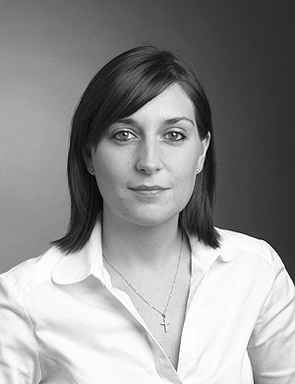Aimie Keki, Audit Director at KPMG in Milton Keynes looks at what new research means for gender diversity in the workplace.
KING’S College London recently interviewed a group of big-business CEOs to understand what they see as the hurdles preventing women from reaching senior management roles.
Aimie Keki, Audit Director at KPMG in Milton Keynes looks at what new research means for gender diversity in the workplace.
KING’S College London recently interviewed a group of big-business CEOs to understand what they see as the hurdles preventing women from reaching senior management roles. The CEOs – predominantly men, unsurprisingly – gave an array of interesting opinions.
What came through loud and clear was the mea culpa: it’s our failure as leaders.
The 15 male CEOs, plus five female CEOs, were brave enough to admit that they had not done enough to drive through change.
In particular, the research identified that the way in which CEOs communicate in respect of diversity is one of the key challenges preventing progress.
Perhaps one of the most effective changes we can make is to talk differently about the subject.
Generally, people understand the commercial reasons for having a diverse boardroom – research has shown repeatedly that a diverse board is less risky and more innovative – and they can articulate the theory. But that’s not enough. What really makes a difference is leaders speaking from the heart.
Echoing this call for more open and honest conversations around diversity, the 30% Club last month released the findings of its latest research, which sought to debunk 10 myths around how women progress to the top.
The research found that men and women have similar career aspirations, leadership behaviour and push and pull factors for career moves. However, the study revealed that even small differences can result in markedly different outcomes.
Currently, a man starting his career in a FTSE 100 organisation is 4.5 times more likely to make it to the executive committee than his female counterpart.
The blockage is at the top: senior women are two times less likely to be promoted and four times less likely to leave than their male peers.
The research also found that a minority of women at senior level – seven per cent of ExCo positions – have responsibility for a profit-generating area of the business. The majority of senior women are responsible for internal functions such as HR and Legal, while the commercial reins are still held by men.
To deliver fundamental change in the future, organisations need to be more honest about the strategic importance of gender diversity. All leaders must show a personal interest in the issue of getting women to the top.
Outsourcing responsibility to HR enablers or diversity and inclusion champions is a cop-out.
Men as well as women need to feel comfortable advocating for change from a personal motivation – for their daughters in the future, if not for their wives in the present.
The Cracking the Code research can be found at www.ysc.com
Contact KPMG For more information, contact KPMG in Milton Keynes on 01908 844977 or visit www.kpmg.co.uk


